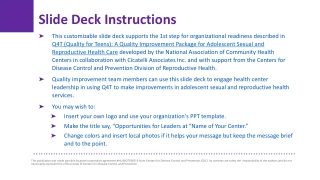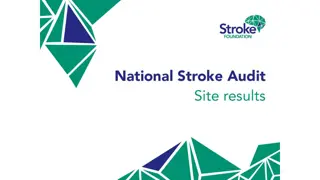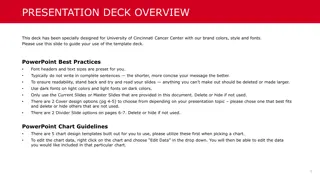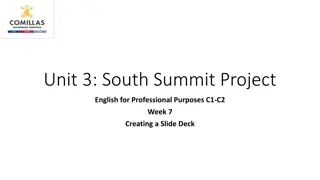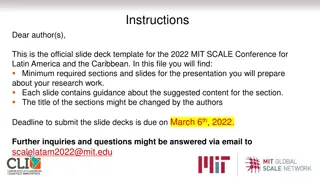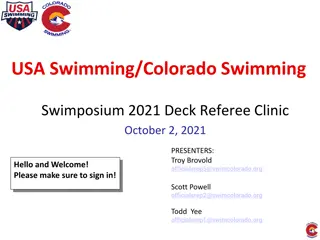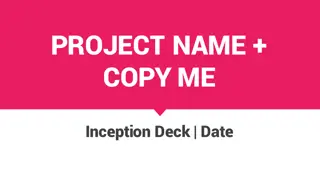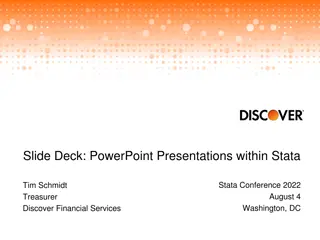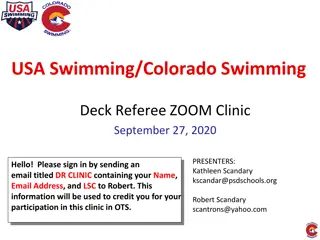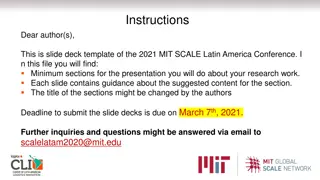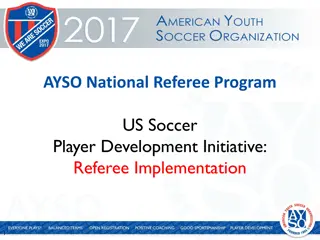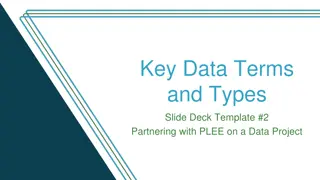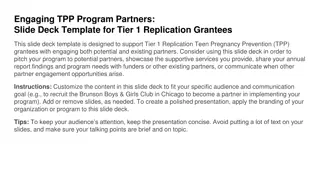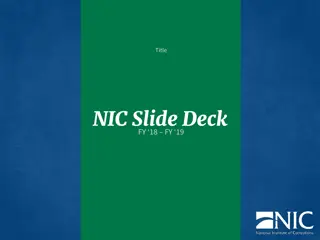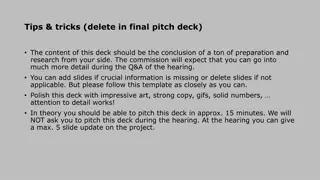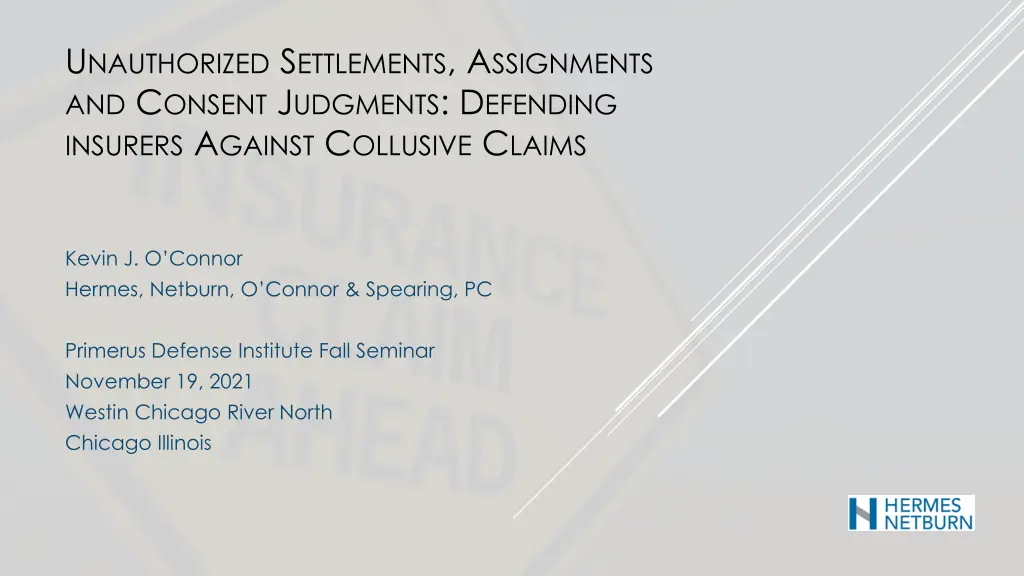
Defending Insurers Against Collusive Claims: Legal Insights
Explore the legal complexities surrounding unauthorized settlements, assignments, and consent judgments in insurance defense, with a focus on defending insurers against collusive claims. Learn about state law variations, common defenses available to insurers, notable case studies, and statutory claims handling standards. Gain valuable insights into protecting insurers' interests while navigating intricate legal landscapes.
Download Presentation

Please find below an Image/Link to download the presentation.
The content on the website is provided AS IS for your information and personal use only. It may not be sold, licensed, or shared on other websites without obtaining consent from the author. If you encounter any issues during the download, it is possible that the publisher has removed the file from their server.
You are allowed to download the files provided on this website for personal or commercial use, subject to the condition that they are used lawfully. All files are the property of their respective owners.
The content on the website is provided AS IS for your information and personal use only. It may not be sold, licensed, or shared on other websites without obtaining consent from the author.
E N D
Presentation Transcript
UNAUTHORIZED SETTLEMENTS, ASSIGNMENTS AND CONSENT JUDGMENTS: DEFENDING INSURERS AGAINST COLLUSIVE CLAIMS Kevin J. O Connor Hermes, Netburn, O Connor & Spearing, PC Primerus Defense Institute Fall Seminar November 19, 2021 Westin Chicago River North Chicago Illinois
State Law Governs Essentially All Questions Presented Significant Variations from State to State
For Example Miller v. Shugart, 316 N.W.2d 729, 733-34 (Minn. 1982) offers a classic formulation: While the insureds have a duty to cooperate with the insurer, they also have a right to protect themselves against the plaintiffs claim If the insureds are offered a settlement that effectively relieves them of any personal liability, at a time when insurance coverage is in doubt, surely it cannot be said that it is not in their best interest to accept the offer. [W]e hold, therefore, that the insureds did not breach their duty to cooperate with the insurer, which was contesting coverage, by settling directly with the plaintiff. certain stated conditions. Missouri Sec. 537.065 One state Missouri deals with the issue by statute, permitting enforcement under
Defenses Potentially Available To An Insurer The claim is not covered Breach of cooperation conditions Settlement was unreasonable The settlement was the result of collusion or fraud
Case Study Capitol Specialty Ins. Corp. v. Higgins, 953 F.3d 95 (1st Cir. 2020)
Massachusetts law permits enforcement of reasonable and non-collusive settlements where a conflict of interest exists between the insurer and the insured Campione v. Wilson, 422 Mass. 185 (1996) Commerce Ins. Co. v. Szafarowicz, 483 Mass. 247 (2019)
Statutory Claims Handling Standards M.G.L. c. 176D Sec. 3(9) Defines unfair claim settlement practices to include: Sec. 3(9)(d) refusing to pay claims without conducting a reasonable investigation based upon all available information Sec. 3(9)(f) failing to effectuate settlement by making a reasonably prompt (and reasonable) settlement offer after liability becomes reasonably clear Either failure supports a claim for violation of the Massachusetts version of the consumer protection act M.G.L. c. 93A
M.G.L. c. 93A Damages for a willful violation [I]f the court finds for the petitioner, recovery shall be in the amount of actual damages or twenty-five dollars, whichever is greater; or up to three but not less than two times such amount if the court finds that the use or employment of the act or practice was a willful or knowing violation of said section two or that the refusal to grant relief upon demand was made in bad faith with knowledge or reason to know that the act or practice complained of violated said section two. For the purposes of this chapter, the amount of actual damages to be multiplied by the court shall be the amount of the judgment on all claims arising out of the same and underlying transaction or occurrence, regardless of the existence or nonexistence of insurance coverage available in payment of the claim.
The Parties PJD Entertainment of Worcester, Inc. D/B/A Centerfolds II nightclub operator Capitol Specialty Insurer of PJD o General Liability Coverage of $1.0 million, each occurrence and in the aggregate o Liquor Liability Coverage of $300,000 each occurrence and in the aggregate o Wasting limits under the Liquor Liability Coverage Part o PJD had no umbrella/excess insurance Claimant 20 year old exotic dancer at PJD o PJD knew she was not of legal drinking age
The Accident 2:30 am, late November 2010 Claimant suffers very significant and permanent injuries Other driver is an off-duty Worcester police officer
Insurers Investigation Notified of the accident by PJD s broker Owner, General Manager and bartender all assert that underage dancers are not permitted to consume alcohol at the Club and the Claimant was not served Investigator reports to Insurer and recommends follow-up with additional witnesses Insurer decides to terminate the investigation of the accident, at least for the present time, and closes its file
Claim Against PJD February 2012 Letter of representation from Claimants attorney to PJD o Alleges Claimant was served alcohol, was impaired and that PDJ is responsible for her injuries o Asks PDJ to preserve all records Upon receipt, Insurer immediately denies claim based on the prior investigation and again closes its file 2013 Claimant files suit against PJD in state court Insurer engages defense counsel, reserving its rights under the GL coverage part.
Defense of Claim Immediately uncovers evidence that Claimant may well have been served alcohol at the club Media reports of the accident Further discussions with PJD owner State investigation results Much of the information learned would have been readily available in 2011 and 2012 if the investigation had been pursued Based on all evidence, if the case was lost, verdict estimate was about $1.0 million
Settlement Negotiations December 2013 Insurer offers its remaining liquor liability policy limits Claimant responds with demand that Insurer pay Liquor liability and general liability limits, offering no release for PJD; Insurer rejects the demand Insurer commences coverage DJ against PJD and Claimant to get an answer as to which coverage part applies PJD, recognizing its exposure in excess of available insurance, begins negotiating with the Claimant directly, ultimately reaching a settlement.
Settlement Terms $7.5 million judgment against PDJ in the state court action Arrange for entry of the consent judgment by agreement $50,000 to be paid by PJD; $7.45 million collectible against Insurer Assignment of PJD claims against Insurer for violation of Chapter 93A/176D Claimant asserts both her own and the assigned Chapter 93A claims as counterclaims in the federal court coverage action, looking for a recovery of $60 million.
Federal Court Proceedings and Trial Insurer prevailed on coverage claim on summary judgment GL coverage did not apply Bench trial of Claimant s direct and assigned Chapter 93A claims Hotly contested liability and damages issues Was there a violation? Evidence of collusion
Trial Court Decision 375 F. Supp. 3d 124 (D. Mass. 2019) Finds statutory claims handling violations on the Claimant s direct claims Decision is silent as to the assigned claims Finds that the violations were willful and knowing, entitling Claimant to multiple damages Rejects the consent judgment as the measure of damages because it was not an arms length transaction. Makes a finding as to actual damages and trebles it to $5.4 million
The Appeal and the lack of any finding on the assigned claims Claimant s appeal raised two issues use of the consent judgment as the measure of damages Capitol s cross appeal sought affirmance on both points and raised numerous other issues
Commerce Ins. Co. v Szafarowicz, 483 Mass. 247 (2019) against an insurer New law in Massachusetts regarding the enforcement of consent judgments Issued the morning Claimant s appellate brief was due Did not address Chapter 93A context; but addressed issue generally Noted inherent and serious risk of collusion Requires both notice to insurer and judicial approval of the judgment as reasonable A settlement in excess of policy limits is per se unreasonable
Appellate Decision The district court s decision was affirmed relying extensively on Szafarowitz Rejected argument that lower court applied the wrong standard as to collusion, a series of factors supporting the district court s finding Settlement amount was 7 times trial counsel s verdict estimate Testimony from Claimant s expert as to purpose of settlement No notice to Insurer No opportunity for the Insurer to participate in the entry of judgment Looked at the issue as one of fact as to whether the settlement was collusive, citing
Takeaways and Lessons Learned Harsh result Whatever relatively minor errors were made in the claims handling process exploded the insurers liability from policy limits to nearly 20 times limits. Know your jurisdiction Look for and recognize the situations where the insured may have an interest in this type of settlement Attempt to mitigate that risk

